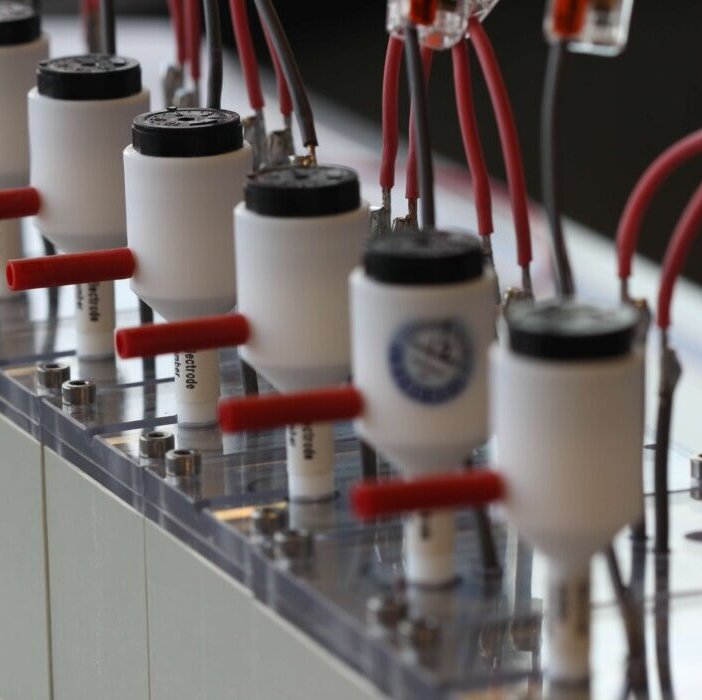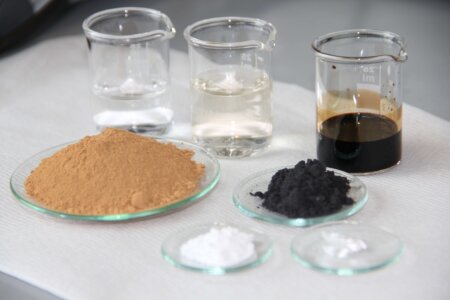
Investigations on the Effect of Carbon Surface Functional Groups on Electrochemical Behavior of Lead-Carbon Electrodes
Partners
Fraunhofer Institute for Silicate Research ISC (Germany) and Wrocław University of Science and Technology (Poland)
Duration
April 2021 - June 2023
Objective
The main goal of this project was to understand the influence of surface functional groups of carbon additives on the electrochemical performance of negative electrodes for advanced lead-acid batteries


Final results
• Chemical modifications were applied to two different pristine carbons with low and high specific external surface areas to obtain different types of acidic and basic carbons
• Electrochemical tests in 2V laboratory cells showed that the external surface area has an impact on dynamic charge acceptance (DCA)1
• Tests also showed that certain surface functional groups have a positive effect on cold cranking amperage (CCA)2 and hydrogen evolution reaction (HER)3 activity
• A correlation was identified between carbon modifications and HER activity
• Specific carbon surface functional groups can increase DCA, while lowering HER activity and improving CCA
1 DCA: the ability of a battery to accept instantaneous energy during charging
2 CCA: a rating system that defines a battery's ability to start or crank an engine in cold temperatures
3 HER: the side reaction occurring on a negative electrode surface which accelerates water loss

Contact us

Project kick off news release